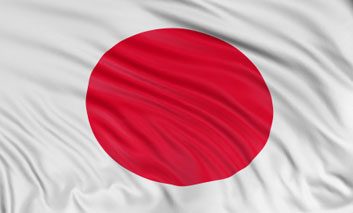News: What are the health risks of exposure to nuclear radiation?
All eyes are nervously on Japan today as the crisis at the Fukushima Daiichi nuclear plant unfolds. As of Tuesday

All eyes are nervously on Japan today as the crisis at the Fukushima Daiichi nuclear plant unfolds. As of Tuesday morning, Prime Minister Naoto Kan has asked that people living within 20-30 km of the plant to stay indoors as radiation released by the facility’s explosion wafts southward towards Tokyo. The Globe and Mail reports (via the Kyodo news agency) that radiation levels just south of the plant were at one point 100 times higher than normal (though those levels have since dropped) and that those levels are "far from fatal."
But what exactly does that mean for the people who live in affected areas? What are the health risks of exposure to nuclear radiation?
According to the World Health Organization (WHO), people living or working near a nuclear power accident are exposed to potentially harmful radiation through the air and contaminated food and water. Immediate health effects of high radiation levels in the environment could include burns, hair loss and acute radiation syndrome. However, the general public isn’t likely to be exposed to the extremely high levels that would cause these symptoms.
The greater health concern are the long-term health effects of radiation exposure, which could include increased risk of cancers, including leukemia and thyroid cancer (risk of the latter can be decreased by taking potassium iodine pills, as many people have done in Japan).
Health risks from nuclear radiation depend on a number of variables, including time of exposure, distance from the plant and even the weather. So the exact health implications of the situation in Japan are difficult to assess at this point. And the long-term effects won’t be apparent for several years.
I was six years old when the Chernobyl disaster occurred and, as there hasn’t been a serious nuclear emergency since then, I honestly haven’t given much thought to potential health risks of nuclear radiation exposure. Until now. Reading this article in the Vancouver Sun reminded me that, during the 2003 blackout, there were concerns that the Pickering, Ont., nuclear plant would face an emergency situation. How quickly we forget these things. Canada has 18 operational nuclear power plants and in the wake of the Japan crisis, the Canadian Nuclear Safety Commission assures us that “…nuclear power plants located in Canada are among the most robust designs in the world and have redundant safety systems to prevent damage in the case of an earthquake.”
Has the disaster in Japan got you thinking more about the potential dangers of nuclear power? Or are you confident that Canada’s nuclear facilities are safe and prepared for natural disasters?
Related:
‘ Earthquake survivors suffer psychological wounds
‘ Cancer
‘ 5 reasons why we feel fear




